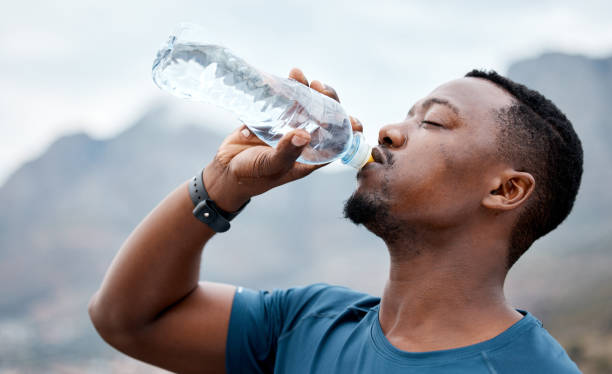Does Drinking from Plastic Affect Your Testosterone?

Introduction
In today’s world, we use plastic for everything — from food containers to water bottles. However, there’s growing concern about how these plastic products affect our health, particularly for men. One of the biggest questions floating around is: Does drinking from plastic lower testosterone?
Maintaining balanced hormone levels, especially testosterone, is critical for men’s overall health. Testosterone plays a huge role in muscle mass, energy levels, and even mood regulation. So, anything that potentially disrupts this delicate balance is worth investigating.
Understanding Testosterone
What Is Testosterone?
Testosterone is a hormone primarily produced in the testicles for men and, in smaller amounts, in women’s ovaries. It’s essential for the development of male reproductive tissues, but it also impacts bone density, muscle strength, and mood.
Functions of Testosterone in the Body
Testosterone influences much more than just reproductive health. It helps maintain a healthy balance of red blood cells, enhances muscle growth, improves cognitive functions, and even boosts libido.
What Is Plastique?
Types of Plastics Commonly Used in Bottles
Many plastic bottles are made from materials like polyethylene terephthalate (PET), polycarbonate, and high-density polyethylene (HDPE). These are chosen for their durability and low cost. However, some contain harmful chemicals that could seep into your water or food.
Chemicals Found in Plastics
Plastics often contain additives like BPA (Bisphenol A) and phthalates, which are known as endocrine disruptors. These chemicals can mimic or block hormones, leading to possible long-term health impacts.
Common Concerns About Plastics and Health
BPA (Bisphenol A) and Its Effects
BPA has been the center of attention when it comes to plastic-related health risks. It can mimic estrogen, a hormone that plays a significant role in both men’s and women’s bodies. In men, excess exposure to estrogen-mimicking chemicals can reduce testosterone levels, which might interfere with muscle development, libido, and overall mood.
Phthalates and Their Impact on Hormonal Health
Phthalates are another class of chemicals found in plastic. These compounds are used to make plastics more flexible, but they too have been linked to hormone disruption, potentially affecting testosterone production.
How Drinking from Plastic Can Impact Testosterone
The Role of Endocrine Disruptors
Endocrine disruptors like BPA and phthalates can interfere with the body’s hormone systems. They may either mimic natural hormones or block their actions, leading to hormonal imbalances, including lowered testosterone levels.
The Link Between BPA and Testosterone Levels
Several studies have suggested that BPA exposure can directly impact testosterone production in men. For instance, researchers have found that men with higher BPA levels in their bloodstream tend to have lower testosterone levels.
Scientific Studies on Plastics and Testosterone
Major Research Findings
Research shows a significant correlation between plastic chemicals like BPA and lower testosterone. One study published in Environmental Health Perspectives highlighted that men exposed to high levels of BPA had reduced testosterone production.
Limitations of the Current Research
While the evidence is concerning, it’s important to note that not all studies have reached the same conclusion. Much of the research is still in its early stages, and more long-term data is needed to establish a definitive link between plastic exposure and hormone disruption.
Long-Term Health Effects of Plastic Exposure
Hormonal Imbalance Risks
Continuous exposure to endocrine disruptors from plastic bottles could lead to chronic hormonal imbalances. For men, this could mean prolonged periods of low testosterone, which might affect overall energy levels, mental clarity, and reproductive health.
Potential Fertility Issues in Men
Some research even suggests that prolonged exposure to these chemicals can result in reduced sperm count and motility, further impacting male fertility.
Practical Ways to Reduce Plastic Exposure
Switching to Glass or Stainless Steel Bottles
The easiest way to reduce your plastic exposure is to switch to reusable glass or stainless steel bottles. Not only are they safer, but they are also better for the environment.
Other Tips to Avoid Plastic Contaminants
Avoid heating food or beverages in plastic containers, as higher temperatures can increase the release of harmful chemicals. Also, check product labels to ensure your plastics are labeled “BPA-free.”
Myths and Facts about Plastics and Testosterone
Common Misconceptions
One common myth is that all plastic bottles are harmful. However, many newer bottles are specifically designed to be free of harmful chemicals like BPA.
Facts Backed by Science
It’s also true that not all exposure levels are dangerous. Moderate, infrequent exposure may not significantly affect testosterone, but long-term, daily use poses greater risks.
Lifestyle Tips to Boost Testosterone Levels Naturally
Diet and Nutrition
Eating a diet rich in healthy fats (such as avocado, nuts, and fish) can support healthy testosterone levels. Avoid processed foods and focus on whole, natural ingredients.
Exercise and Stress Management
Regular strength training and managing stress through mindfulness can help your body maintain healthy hormone levels. Avoid chronic stress, as it can raise cortisol levels, which in turn may lower testosterone.
Are All Plastics Dangerous?
Plastics You Can Safely Use
Not all plastics are harmful. Look for BPA-free plastics or those labeled with recycling codes 2, 4, and 5, which are generally considered safer.
What to Look for on Labels
Check for labels indicating “BPA-free,” and avoid plastics marked with recycling codes 3 or 7, as these are more likely to contain harmful chemicals.
Conclusion
While the evidence linking plastic exposure to lower testosterone is still developing, it’s clear that chemicals like BPA and phthalates can disrupt hormonal balance. By making small changes, such as switching to glass or stainless steel bottles, you can minimize your risks.
FAQs
Can drinking from plastic bottles really lower testosterone?
Yes, chemicals like BPA found in some plastics can disrupt testosterone production.
How can I know if my plastic bottle is BPA-free?
Check the label for “BPA-free” or choose plastics with recycling codes 2, 4, or 5.
What alternatives to plastic are safest?
Glass and stainless steel are the best alternatives.
Can plastic exposure affect women too?
Yes, endocrine disruptors can affect both men and women.
What should I do if I’ve been using plastic bottles for years?
Switch to safer alternatives and limit future exposure.


